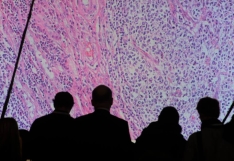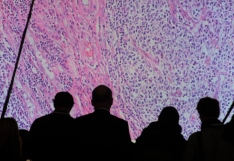Do you like hotdogs and bacon? If you do, then you're not going to like this news.
The World Health Organisation (WHO) recently concluded that processed meat products, particularly those with nitrites and nitrates, can cause cancer.
A division of the WHO which focuses on cancer risk study, the International Agency for Research on Cancer (IARC), specifically categorised processed meats such as sausages, lunchmeat, bacon and hotdogs into the high "Group 1" category.
Food products under this category are considered definitely "carcinogenic to humans."
The IARC reached this conclusion after reviewing more than 800 scientific studies about the relationship between processed meat products and certain types of cancer, such as colon cancer and pancreatic cancer.
The study defines processed meat as any type of meat that has been salted, cured or smoked to preserve it or enhance its flavour.
According to the WHO research, people who eat about two ounces of processed meat daily, such as approximately two slices of bacon, are 18 percent more at risk of getting cancer.
Dr. Kurt Straif, a member of the IARC, said a person is more at risk of cancer if he or she frequently eats processed meat products.
"For an individual, the risk of developing colorectal cancer because of their consumption of processed meat remains small, but this risk increases with the amount of meat consumed," Straif explained, as quoted by CBN.com.
In fact, the WHO said 34,000 of the 8 million cancer deaths worldwide each year can be attributed to consuming processed meats.
Scientists specifically point to the added nitrites or nitrates, the chemicals added to processed meat for them to last long in storage, as the main cancer-causing component.
Nutrition experts advise healthier diets composed of fruits, vegetables, poultry and fish products. If processed meat products cannot be avoided, those marked with labels indicating "no nitrites or nitrates" should be chosen.















